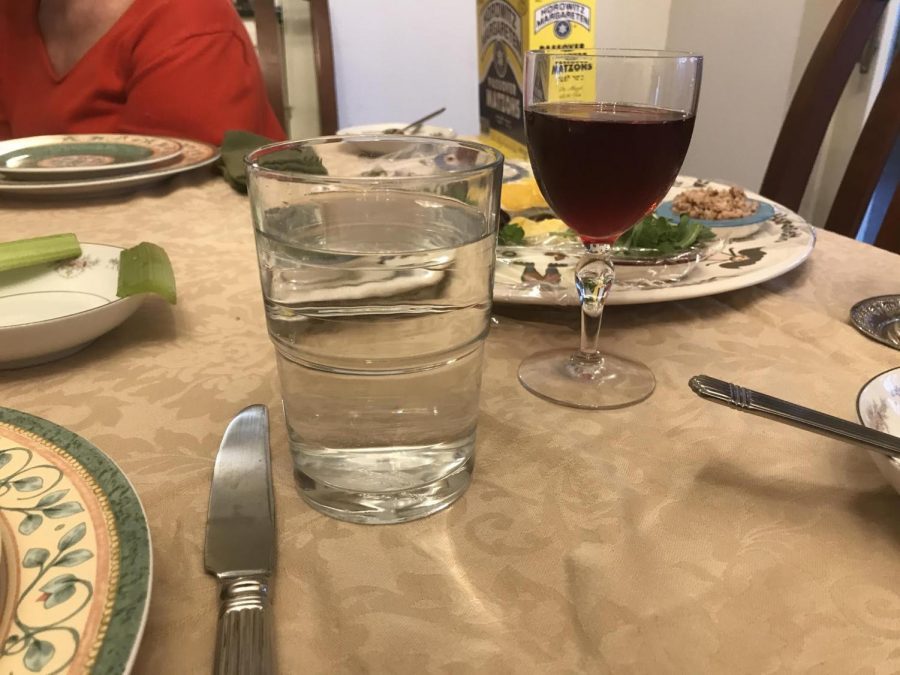COLUMN: Passover, plagues, and the meaning of freedom
Families around the world continue to celebrate Passover even when quarantined.
Mah nish ta na halila hazeh, indeed, but perhaps, not in the way I first thought.
Passover in quarantine ended up exemplifying a concept we Jews love so very much: irony. But it also captured the true spirit of the holiday: celebrating and understanding freedom.
As my mom and I sat down to our two seders, we began to laugh at the first line of our Haggadah, that the Hebrew word Seder – the name for the set of rituals performed in a Passover meal, as outlined in the aforementioned Haggadah – means order. Between Zoom Seders and a massive pandemic, there was anything but order. As we thanked God for our freedom, we noted the feeling of entrapment that came with quarantine. As we recounted the plagues God brought down to win our freedom, there was an increased understanding that our freedom was earned on the backs of suffering.
Perhaps ours, therefore, was a more reflective, more empathetic Passover. Despite the obvious humor in calling COVID-19 the “Eleventh Plague” or relishing in the periods of ritual hand-washing in the Seder (twenty seconds, indeed), there was also a deeper understanding that freedom is not free.
I read in an online Coronavirus-friendly Haggadah that while Pharaoh is the villain of the Passover story, the Egyptian people were not. When the rivers turned to blood, when lice rained from the heavens, when the Angel of Death struck down the first born son of every Egyptian family, there were innocents harmed. While relieved from slavery ourselves, we put others in the bondage of grief and poverty. While we danced across the Red Sea, Egyptian fathers, sons and brothers drowned. Freedom is not free of sin, thus why we spent 40 years in the desert.
As a 17-year-old in Cherry Hill who has the luxury of a warm, accepting and loving home in which to quarantine, I will likely survive this virus. I have not sworn an oath to Apollo that means I must leave my family behind and fight this virus on the front lines, like the medical professionals who must deal with dwindling supplies and long hours. I am not in communities that do not have access to shelter, food and water. Despite feeling cooped up, I am free.
There is a concept in constitutional law: freedom to vs. freedom from. I may not have the freedom to go out, to hang out with my friends. I may lose the prom and graduation I have spent more than half my life anticipating. In terms of freedom to, I may not be fortunate right now. But I am free of the burden of slavery, which still rears its ugly head on this Earth. I am free from the tyranny of illness – baruch hashem – which slowly blankets the globe. While it feels contradictory to celebrate freedom in quarantine, in fact, we have more deliverance and more mercy to celebrate than ever before.
Was it awkward having a Seder for two? Yes. Were there pieces of irony that made us chuckle? Yes. But the true meaning of Passover, besides celebration, is to live and learn from the horrors of the past what it truly means to be free.
So next year (in Jerusalem, hopefully), when there are once again family and friends to break bread (er…matzo) with, when there are once again only four real differences between tonight and all other nights, when the “Eleventh Plague” has lifted, let us never again take our freedom for granted, and let us remember those who were struck down and sacrificed to return our world to normal, to once again intermingle our freedoms to and our freedoms from.
And let us never forget that while Passover is the holiday’s name in English, the reason the Angel of Death passed over the Israelites was because of the pesach, sacrifice.
And, as the Haggadah tells us, wash your hands.


